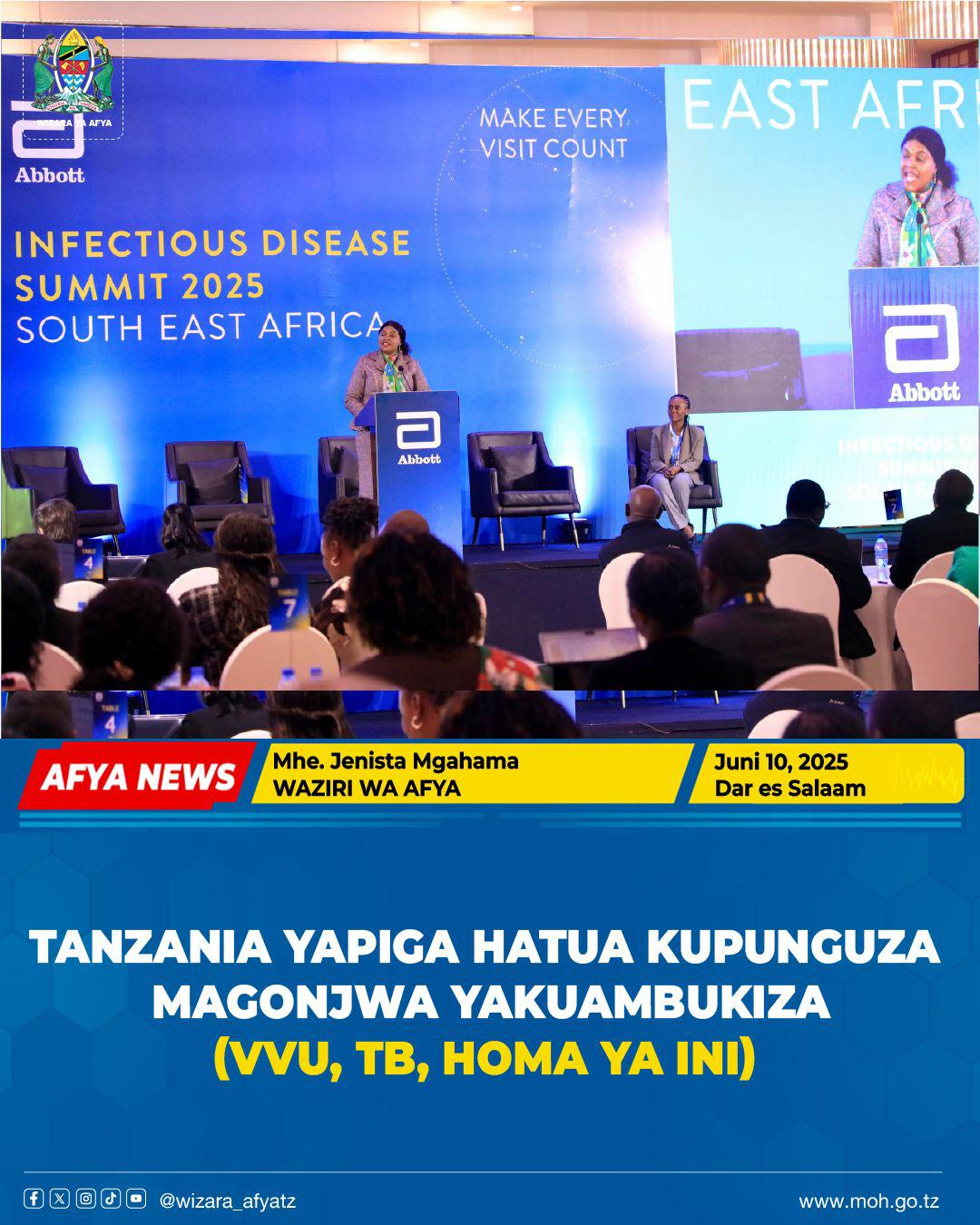Tanzania is making notable progress in its fight against infectious diseases, with recent data showing a steady decline in HIV, hepatitis, and tuberculosis cases a strong indication that the country is on track to meet international health targets by 2030.
According to the Minister for Health, Jenista Mhagama, the HIV infection rate among Tanzanians aged 15 and above has declined from 4.7 percent in 2016/17 to 4.4 percent in 2022/23.
She made the remarks on June 10, 2025, during the fifth annual Abbott Rapid Diagnostics Conference held in Dar es Salaam, which brought together health experts and stakeholders from across East and Southern Africa.
Minister Mhagama noted that Tanzania has made commendable progress in meeting the UNAIDS 95-95-95 targets. The percentage of people living with HIV who are aware of their status rose from 65 percent in 2016/17 to 83 percent in 2022/23.
Of those diagnosed, 98 percent are now receiving antiretroviral treatment up from 94 percent while the rate of viral suppression improved from 87 percent to 94 percent during the same period.
“These achievements reflect our commitment to ending the HIV epidemic by 2030,” she said, emphasizing the government’s continued investment in healthcare infrastructure, community outreach, and testing services.
Tanzania has also recorded success in combating hepatitis. The prevalence of Hepatitis B decreased from 4.3 percent to 3.5 percent, while Hepatitis C dropped significantly from 1.1 percent to just 0.2 percent between 2016/17 and 2022/23.
On tuberculosis, Hon. Mhagama said the number of reported cases rose from 62,180 in 2015 to 93,300 in 2023 an increase driven by expanded screening and early detection.
As a result, the country has seen a 40 percent decline in TB incidence and a 68 percent reduction in TB-related deaths.
“This is a clear sign that Tanzania is progressing well towards the global goal of eliminating TB by 2030. Strengthened diagnostic capacity and an improved health system have played a critical role in these results,” she added.
The Abbott Rapid Diagnostics Conference serves as a key platform for exchanging knowledge and strategies to address the burden of infectious diseases across the region.

